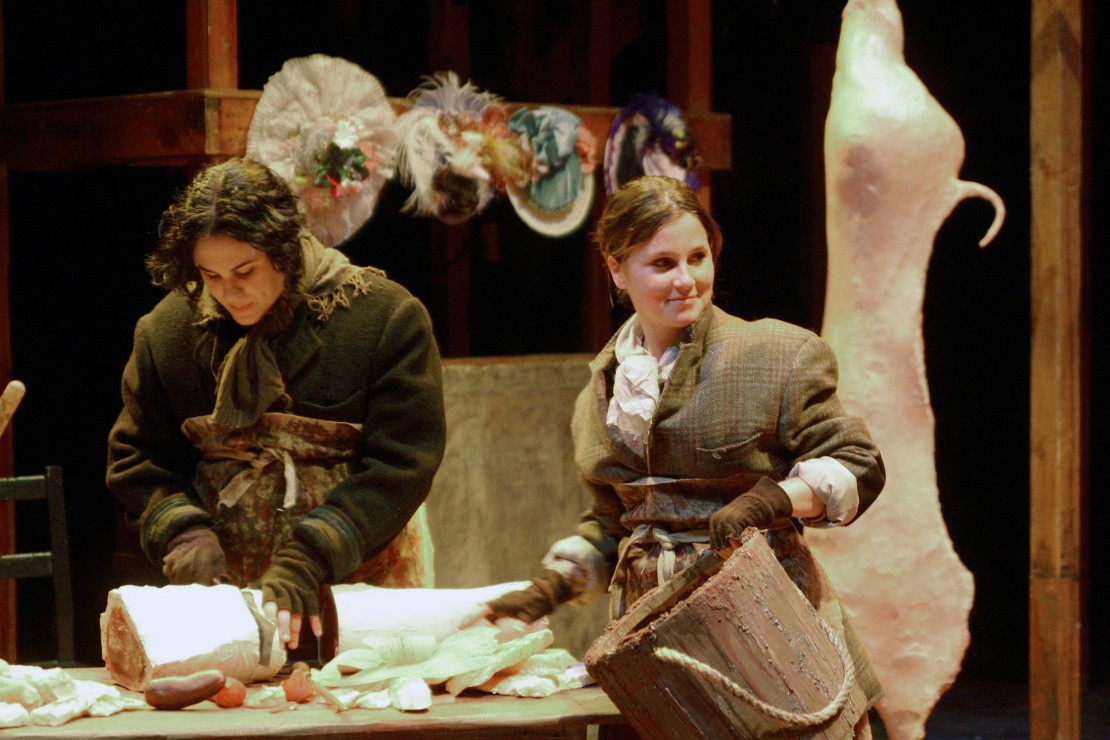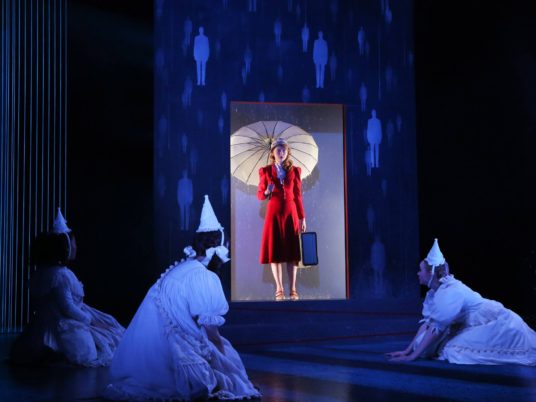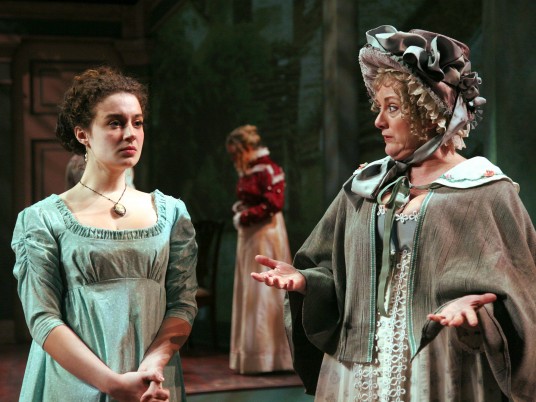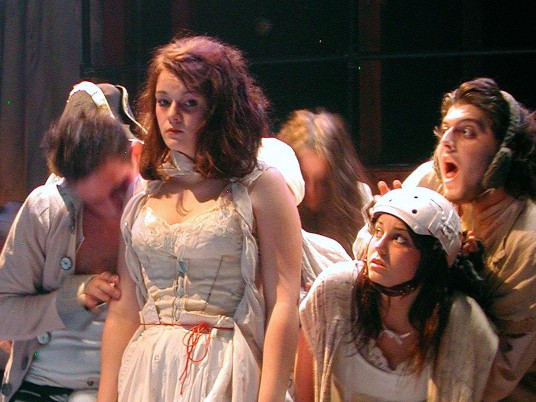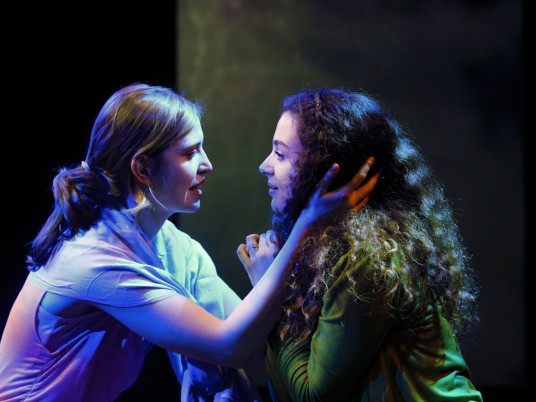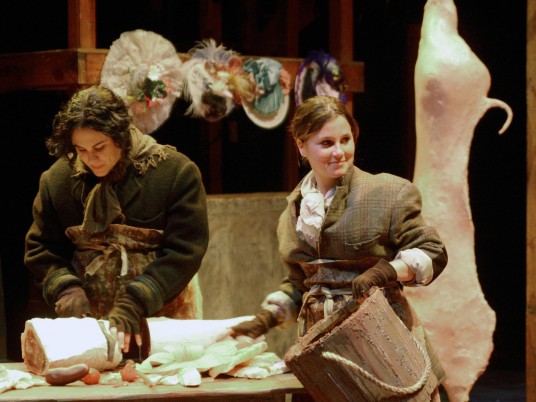Gut Girls
To capture the spirit of the 1900 gutting sheds, I staged the play in the Mobius Theatre. Meat is such a political issue and I wanted the blood from the gutting shed to symbolically spill over into the lives of the upper classes. The elite have a responsibility for the conditions of the workers, whose lives permeate their own, whether they like it or not. —Helene Kvale
Scenic Designer, Brett McCormack
Costume Designer, Anya Sokolovskaya
Lighting Designer, Kelly Roberts
Sound Designer, Brandon Purstell
Photographer, Gerry Goodstein
Connecticut Repertory Theatre
They’d have still got their way – those people with their schemes and funds and clubs and allowances- all thought up out of fear, that we the ones who made their wealth might get out of hand. So we need to be tamed and trained to succumb to their values and orders.” —The Gut Girls by Sarah Daniels
Sarah Daniels’ play, The Gut Girls is set in 1900 just before the death of Queen Victoria when the British Empire ruled over huge swathes of Africa, the Middle East and Asia.
It takes place in impoverished “dirty Deptford”, a section of south London, where the locals would regularly tread that fine path between enterprise and crime. Most of the working class residents lived in unimaginable squalor along the banks of the Thames river which served as a bathing spot, sewage outlet and dumping ground for the meat carcasses from the Foreign Cattle Market.
The livestock and mass slaughterhouses of the Market added to the overwhelming stench of Deptford. It brought the threat of foot and mouth disease, but also crucial work prospects to an otherwise deprived area.
The employment of women in the offal sheds to clean out the innards of the slaughtered animals was hugely controversial. Known locally as “the gut girls”, some were as young as 14, earning much more than any domestic servant. They worked 13 hour days, in dangerous conditions and were surrounded by the notoriously lewd slaughter men. They wore outrageous hats, gaudy jewelry and could drink any man under the table. Historian Jess Steele describes how they terrorized the local community with their economic power and raucous behavior.
But The Gut Girls is more than a history lesson—it is also a harsh reflection on the class politics of the time when it was written. Sarah Daniels wrote the play in 1988, at a time of deep political upheaval in Britain. The Prime Minister, Margaret Thatcher, had systematically destroyed the mining industry, smashed the trade union movement and abandoned working class communities throughout the nation. She claimed there was “no such thing as society”, as she broke the working class spirit. “We are all middle class”, she said.
The massive unemployment rates, the erosion of labor rights and the growing inequality between rich and poor, politicized average citizens. They took to the streets in protest. This was a period of history characterized by riots, mass strikes and enormous class conflict.
The Gut Girls translates the political climate of 1988 to 1900 when Britain was again starkly divided along class lines. Working class girls in Victorian England were expected to serve the rich, just as the boys were expected to fight the bloody overseas wars for king and country. The “upstairs downstairs” set-up of the wealthy home was mirrored in society.
In our production the collision of the classes is played out. However, it is important to remember that the issue of class was and still is, an extremely complex one. The do-gooder Lady Helena means well and does indeed make resounding improvements to the lives of the poor in Deptford, but by virtue of her elite status, she will never fully comprehend the loss that the gut girls experience.
It is trade unionist, Ellen who leaves us with the final words. In 2005, as the Walmartization of the global economy takes hold, and workers’ rights are again being eroded, we have to remind ourselves that the struggle against social injustice is not yet over. —Helene Kvale
References: Jess Steele, Turning the Tide: The History of Everyday Deptford, 2000
